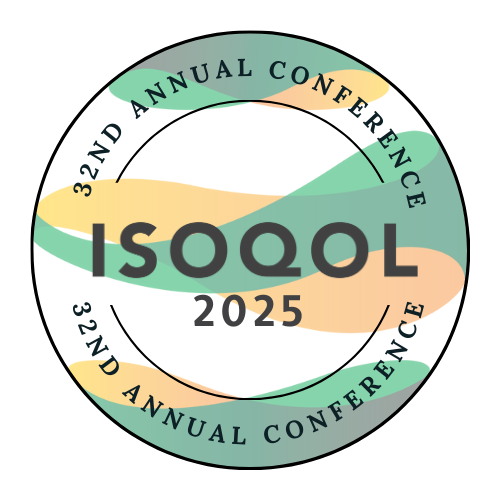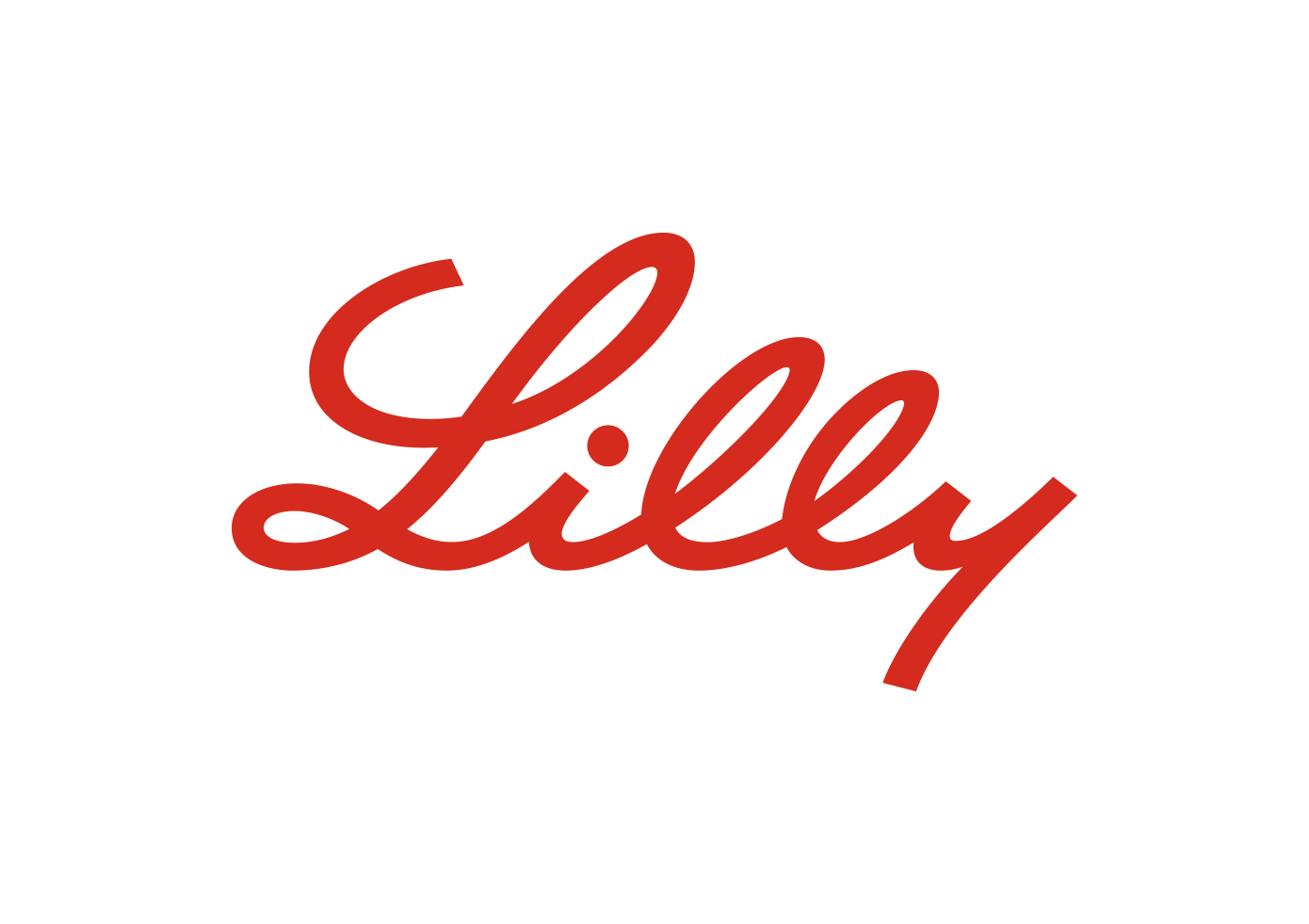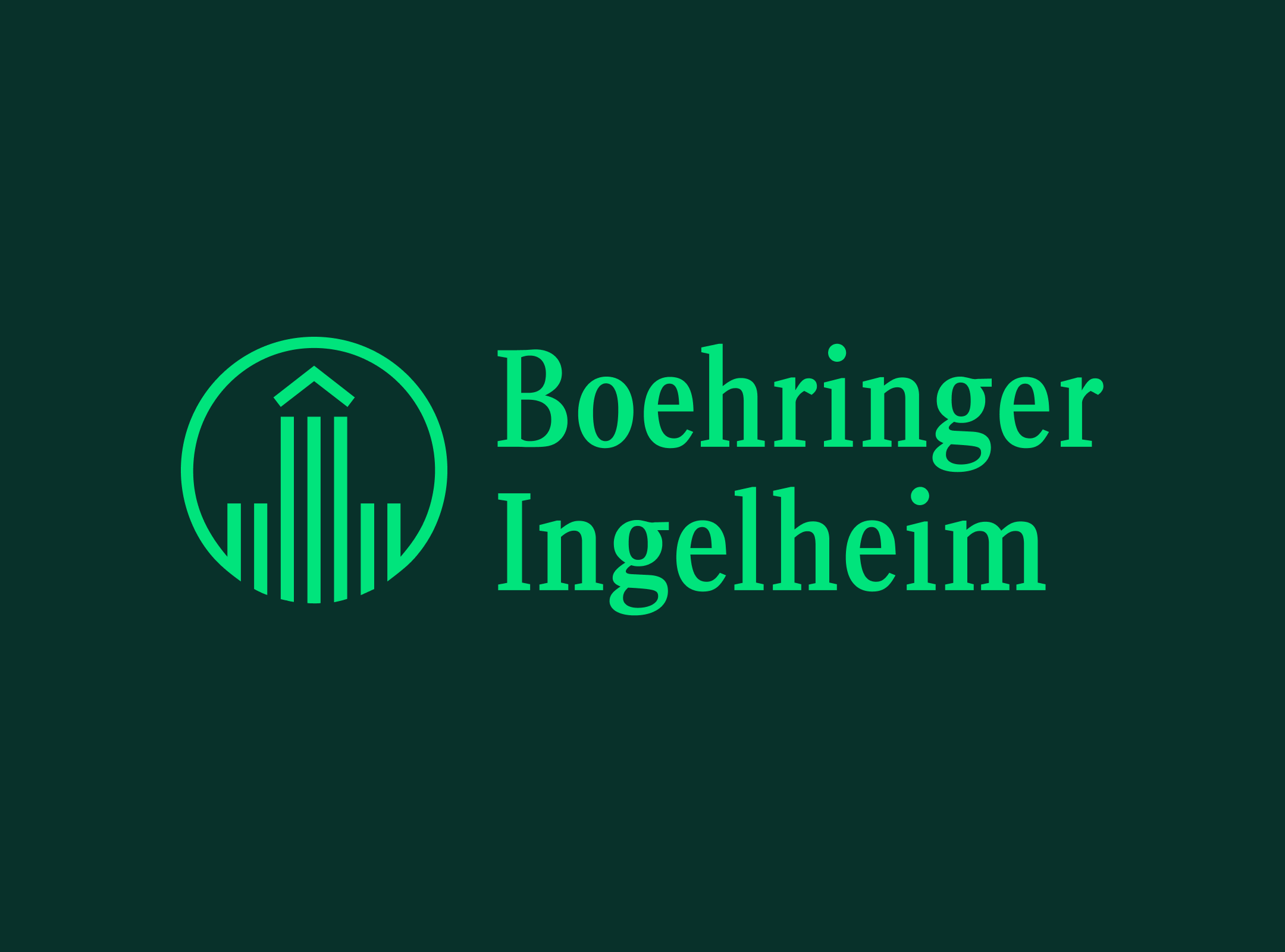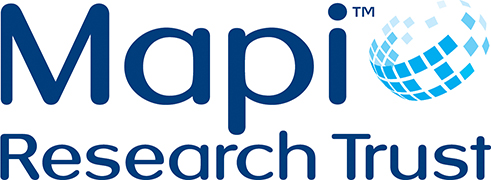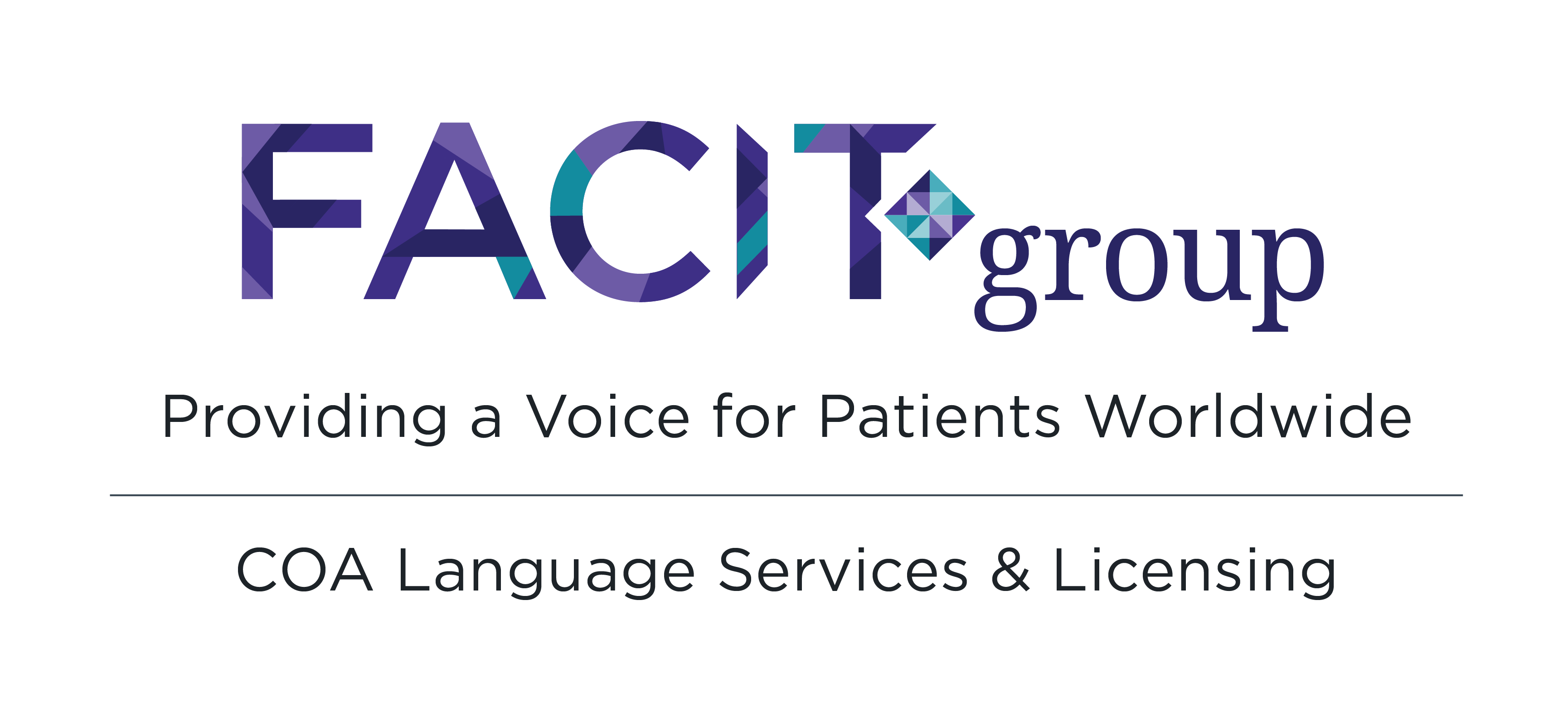32nd Annual Conference Program Archive
Conference Theme
Artificial Intelligence & the Future of Quality of Life Research
Scientists worldwide are excited and concerned about the transformation of research with increasing use of artificial intelligence (AI). Given ISOQOL’s vision to improve quality of life for people everywhere by creating a future in which their perspective is integral, as well as our mission to advance the science of quality of life research, this year’s conference focused on quality of life research in the context of artificial intelligence. Plenary sessions focused on the theory, methods, and application of AI in quality of life research, along with cutting edge research.
Scientific Program Committee Co-Chairs

Kathryn E. Flynn, PhD
Medical College of Wisconsin
Wisconsin, United States

Elizabeth Tschosik, PhD
Genentech
Illinois, United States
Plenary Sessions
Plenaries were livestreamed during their scheduled times at the in-person conference. Watch the recordings on-demand on the virtual conference platform through 22 January 2026.
Plenary 1: The Promise & Pitfalls of Artificial Intelligence
Sponsored by Genentech
Description:
What is artificial intelligence, and what does it mean for quality of life research? This session established a foundational understanding of AI concepts and terminology and introduced the intersection of AI and quality of life research. It included attention to broad ethical and theoretical considerations as well as a patient perspective. Benefits and challenges of employing AI in quality of life research were explored.
Speakers:
 Chris Gibbons, PhD, Oracle Health, Houston, Texas, United States
Chris Gibbons, PhD, Oracle Health, Houston, Texas, United States
I am Chief Applied Scientist in Health AI Innovation at Oracle Health. I am an academic data scientist and health services researcher by background and have dedicated my career to design, deploy, and evaluate computational techniques to make better decisions about health and healthcare to improve outcomes. To progress towards this goal, I focus on two complementary areas of investigation: patient-centered data and predictive modeling.
 Hugo Campos, Research Partner, San Francisco Bay Area, California, United States
Hugo Campos, Research Partner, San Francisco Bay Area, California, United States
Hugo Campos is a nationally recognized patient advocate who blends creative and technical expertise to advance participatory, AI-enabled care shaped by patients. Named a White House Champion of Change for Precision Medicine, he advocates for patient autonomy and access to health data while managing hypertrophic cardiomyopathy with an implantable defibrillator. Hugo serves on the NIH All of Us Research Program Steering Committee, co-leads patient engagement for PCORI’s THRIVE trial, and advises UCSF–UC Berkeley’s Computational Precision Health program. A TEDxCambridge speaker featured by NPR and The Wall Street Journal, he lives in Oakland with his husband, father, and cat.
 Ravi Parikh, MD MPP, Emory University, Atlanta, Georgia, United States
Ravi Parikh, MD MPP, Emory University, Atlanta, Georgia, United States
Ravi B. Parikh, MD, MPP, is an oncologist and Associate Professor at Emory University and Winship Cancer Institute. His research investigates how doctors, patients, and health policymakers can use AI to improve decision-making and promote equitable healthcare. Dr. Parikh’s lab, the Human-Algorithm Collaboration Lab, runs clinical trials testing how clinicians and AI collaborate in making decisions about diagnosis, prognosis, and treatment selection. Dr. Parikh’s work has been published in Science, The New England Journal of Medicine, and JAMA, and he has written about AI for The New York Times and Washington Post.
Moderator:
Josephine M. Norquist, MS, Merck & Co., Inc., West Point, Pennsylvania, United States
Plenary 2: Tools of Transformation: Advancing Quality of Life Research with AI
Description:
The methods we use to develop, validate, and analyze patient-reported outcome measures will evolve with the increasing use of artificial intelligence. This session presented the most promising AI tools and methodologies for quality of life researchers. The ways in which artificial intelligence will complement and advance the field of quality of life research were explored, and case studies provided insights into how AI is already being used to enhance quality of life research.
Speakers:
 Hudson Golino, University of Virginia, Charlottesville, Virginia, United States
Hudson Golino, University of Virginia, Charlottesville, Virginia, United States
Dr. Golino is an Associate Professor of Quantitative Methods at the Department of Psychology, University of Virginia. His work focuses on developing new network psychometric methods and software, combining quantum/information theory, network science, psychometrics, machine learning, and natural language processing/large language models. Currently, he and his team are developing a new set of methods (and open-source software) for the automatic development and validation of items/tests/questionnaires using large language models and methods from the field of Exploratory Graph Analysis, in a new field he calls Generative Psychometrics.
 Tina Hernandez-Boussard, PhD, Stanford University, Stanford, California, United States
Tina Hernandez-Boussard, PhD, Stanford University, Stanford, California, United States
Dr. Hernandez-Boussard is the Associate Dean of Research and Professor of Medicine (Biomedical Informatics) at Stanford University. Her work is at the intersection of informatics and health equity, promoting responsible AI in healthcare. She utilizes diverse, multi-modal data to develop rigorous criteria and guidelines that steer the development of responsible AI, aiming to bridge gaps in health equity and enhance patient outcomes. Dr. Hernandez-Boussard advocates for practices that ensure the benefits of digital technologies are realized across all segments of society.
 Amrita Basu, PhD, University of California San Francisco (UCSF), San Francisco, California, United States
Amrita Basu, PhD, University of California San Francisco (UCSF), San Francisco, California, United States
Dr. Basu’s research focuses on uncovering genetic susceptibility markers for serious adverse events in breast cancer. She is also investigating symptom predictors of toxicities and developing trial endpoints that balance efficacy and toxicity. She leads the ePRO initiative in the I-SPY clinical trial and uses machine learning algorithms to predict drug toxicities and quality of life in breast cancer patients.
Moderator:
Yuelin Li, PhD, Sloan Kettering Cancer Center, New York, New York, United States
Plenary 3: Breaking Tradition: Disrupting Quality of Life Research with AI
Sponsored by EORTC
Description:
Artificial intelligence is poised to revolutionize how the patient experience is captured and interpreted in clinical research and in clinical practice. This session examined how AI-driven approaches might redefine, or even replace, traditional methods in patient-centered outcomes research. Speakers explored the disruptive potential of AI, focusing on emerging innovations and their implications for the field of quality of life research.
Speakers:
 Christopher Forrest, MD PhD, Children’s Hospital of Philadelphia, Philadelphia, Pennsylvania, United States
Christopher Forrest, MD PhD, Children’s Hospital of Philadelphia, Philadelphia, Pennsylvania, United States
Dr. Forrest is a long-time member of ISOQOL, a past Board member, and a pediatrician and health services and outcomes researcher. He is the Director of PEDSnet (pedsnet.org), a national pediatric learning health system. His research group has developed numerous pediatric patient-reported outcome measures, both child self-report and parent-proxy versions. He is a member of the National Academy of Medicine, and serves on the Board of Regents for the National Library of Medicine. Forrest received his BA and MD degrees from Boston University and his PhD (Health Policy and Management) from Johns Hopkins University.
 Kevin Lybarger, PhD, George Mason University, Fairfax, Virginia, United States
Kevin Lybarger, PhD, George Mason University, Fairfax, Virginia, United States
Dr. Kevin Lybarger’s research centers on artificial intelligence (AI) and natural language processing (NLP), particularly within healthcare. His interests span clinical informatics, health-oriented conversational agents, and public health. He develops innovative approaches leveraging textual data and conversational AI to inform clinical decision-making, improve patient care, and promote health equity. Dr. Lybarger earned his PhD in Electrical and Computer Engineering from the University of Washington (UW), an MS from the University of Colorado Boulder, and a BS from Seattle University. He completed a National Library of Medicine Postdoctoral Fellowship at the UW School of Medicine.
 Christine Guo, PhD, Ametris, Pensacola, Florida, United States
Christine Guo, PhD, Ametris, Pensacola, Florida, United States
Christine Guo leads the clinical and data science team at Ametris (formerly ActiGraph), responsible for the scientific strategy and services supporting Ametris’ leadership in digital medicine. Christine has over 15 years of experience in clinical research and a vision for leveraging technology in clinical trials and practice. Prior to Ametris, Christine was Head of Scientific Innovation at Biogen Healthcare Solutions, leading the clinical development and validation of Biogen’s digital medicine products (Software as Medical device) in multiple sclerosis, neuromuscular and neurodegenerative diseases. Christine holds a B.A. in biological sciences from Peking University and Ph.D. in neuroscience from Stanford university.
Moderator:
Tom Willgoss, PhD, Roche Products, Welwyn, United Kingdom
Plenary 4: Cutting Edge Research Plenary
Sponsored by Clinical Outcomes Solutions
Description:
The Cutting Edge Research plenary session featured some of the highest-ranked, innovative research from ISOQOL abstract submissions. In particular, these abstracts reflected research that truly “pushes the ISOQOL envelope” in providing new and different ways to look at quality of life.
Speakers:
 Fabio Efficace, PhD, Italian Group for Adult Hematologic Diseases, Rome, Italy
Fabio Efficace, PhD, Italian Group for Adult Hematologic Diseases, Rome, Italy
Synthetic Patient Generation in Myelodysplastic Syndromes: A Novel Approach Integrating Patient-Reported Outcome Data in Prognostic Models
He is currently the Head of the Health Outcomes Research Unit of the Italian Group for Adult Hematologic Diseases (GIMEMA) and Chair of the GIMEMA Working Party on Quality of Life. He served as Chair of the EORTC Quality of Life Group, he was on the Board of Directors of ISOQOL and also an Adjunct Professor at Department of Medical Social Sciences at Northwestern University (USA). He has given several invited lectures in top academic institutions and scientific societies, including the American Society of Hematology (ASH), and he has been the PI of several large-scale international projects on patient-centered outcomes in oncology.
 Caroline Terwee, PhD, Amsterdam UMC, Amsterdam, Netherlands
Caroline Terwee, PhD, Amsterdam UMC, Amsterdam, Netherlands
The potential role of artificial intelligence in the translation of PROMs: a pilot study with the Dutch translation of the PROMIS® Sexual Function and Satisfaction measures
Caroline Terwee is professor of Outcome Measurement in Healthcare at Amsterdam University Medical Centers. She conducts methodological and applied research on the selection and standardization of patient-reported outcomes, and patient-reported outcome measures. To this end, she has a special interest in systematic reviews of PROMs, as well as the development and application of core outcome sets and generic IRT-based item banks, such as PROMIS. The is one of the founders of the COSMIN initiative and current chair of the PROMIS International Committee.learning. She had finished her post-doctoral fellowship at St. Jude Children’s Research Hospital and has received the New Investigator Outstanding Oral award from ISOQOL in 2020. Her recent work emphasizes developing AI methods to improve healthcare delivery for cancer survivors.

Yuelin Li, PhD, Memorial Sloan Kettering Cancer Center, New York, New York, United States
GPT-4o Accurately Identifies Patient-Reported Free Text Symptoms After Ambulatory Cancer Surgery Without Need for Direct Human Supervision: A Zero-Shot Learning Task in Investigating AI-Assisted Personalized Oncology Care
Yuelin Li, a methodologist at Memorial Sloan Kettering Cancer Center in New York City, is pioneering the use of AI technology, specifically Large Language Models (LLMs), to enhance PROs. LLMs enable patients to report symptoms in their own words, such that “I felt the room spinning when standing up” would be interpreted automatically as ‘dizziness,’ which can then be relayed to clinicians for timely support. In April 2025, we published the first empirical paper documenting its accuracy. It is essential to continuously provide empirical evidence to evaluate AI’s use in PROs. Additionally, he has made contributions to Bayesian statistical methods.

Stacie Hudgens, MA, Clinical Outcomes Solutions, Tucson, Arizona, United States
Concept Extraction from full text publications in qualitative literature reviews using COAScape AI, a Biomedical Large Language Model
Moderator:
Angela Stover, PhD, University of North Carolina, Chapel Hill, North Carolina, United States
Roundtables
Roundtable 1: AI on the Prize: The Digital Future of Patient-Centered Outcomes in Pharma
Description:
In an era of rapid technological advancements, the pharmaceutical industry is redefining how it measures patient-centered outcomes and accelerates the development of new treatments. This roundtable discussion explored emerging trends in patient-centered outcomes research (PCOR), including the integration of digital health technologies and AI to enhance drug development and patient care.
Host:
Tom Willgoss, PhD MSc
Roche,
Welwyn, United Kingdom
Roundtable 2: Linguistic validation in the age of AI
Description:
To ensure conceptual equivalence and cultural appropriateness, translating clinical outcome assessments (COAs) requires a rigorous, multi-step methodology. Given the cost and time-intensive nature of this process, leveraging AI presents significant potential. However, does it also present risks? This roundtable delved into the current state of AI in COA translation, addressing key topics such as translation quality, copyright protections, and data privacy.
Host:
Benjamin Arnold, MA
FACITtrans,
Ponte Vedra, Florida, United States
Roundtable 3: Using PROs in Routine Care: Translating Knowledge into Practice
Description:
With the increasing interest in (and, in some cases, mandates for) using patient-reported outcomes in clinical practice, knowledge translation tools built on evidence can provide valuable guidance and support. During this roundtable, participants had an opportunity to share their experiences using PROs in routine care and learned about resources available to help navigate the process.
Host:
Claire Snyder, PhD
Johns Hopkins School of Medicine,
Baltimore, Maryland, United States
Roundtable 4: Conducting Validation Work within the Argument-Based Validity Framework
Description:
The FDA’s Patient-Focused Drug Development Draft Guidance 3 encourages the development of an evidence-based rationale to demonstrate that a clinical outcome assessment is fit-for-purpose. This approach comes from the argument-based framework for validity developed in educational and psychological testing, which might not be familiar to some members of ISOQOL. This roundtable discussed how to conduct validation work using this framework. The discussion included tips on constructing and evaluating rationales specifically for patient-reported, observer-reported, clinician-reported, and performance outcome measures.
Host:
Kevin Weinfurt, PhD
Duke University School of Medicine,
Durham, North Carolina, United States
Roundtable 5: Caregiver- and proxy-reporting: expanding perspectives and future strategies
Description:
This roundtable discussion examined the evolving role of caregiver- and proxy-reporting in healthcare, acknowledging its importance beyond traditional agreement studies. Topics included measurement and implementation challenges, the contexts in which proxy-reported outcomes are most versus least beneficial, and strategies for future research. Participants joined to explore these critical issues and enhance caregiver involvement and proxy-reporting in healthcare.
Hosts:
Brittany Lapin, PhD MPH
Cleveland Clinic,
Cleveland, Ohio, United States

Jessica Roydhouse, PhD
University of Tasmania,
Hobart, Tasmania, Australia
Roundtable 6: Qualitative research: A collaborative discussion exploring the importance of keeping the human in the loop as the field leverages AI tools
Description:
How will qualitative research be shaped by the rise of AI—and what are the key considerations for keeping the human in the loop as the field evolves? As artificial intelligence becomes increasingly integrated into health outcomes research, qualitative researchers are navigating new opportunities—and new challenges. This interactive roundtable explored the evolving role of AI in qualitative methods, with a focus on maintaining the essential role of human insight and interpretation. Participants were encouraged to share their experiences using AI tools, raise questions, and discuss practical and ethical considerations. Topics included identifying points in the qualitative research process where AI can add value, the risks of over-reliance on automation, and strategies for ensuring that human perspectives remain central—not only to preserve context and meaning, but also to accurately reflect the richness and depth of qualitative data. Participants joined for an exploratory collaborative conversation about the future of qualitative research in an AI-enabled world.
Host:
Sally Mannix
Evinova,
Gaithersburg, Maryland, United States
Symposia
A symposium examines a topic from differing perspectives and presenters. Presentations and debate among speakers address alternative solutions, interpretations or points of view within the symposium topic area.
Symposium 1: Key Findings from the EuroQol DAPHNIE Project: A Comprehensive International Study on Population Health Assessment and Comparative Analysis of Health Measurement Instruments Across 15 Countries
Moderator:
Fatima Al Sayah, Alberta PROMs & EQ-5D Research & Support Unit (APERSU), School of Public Health, University of Alberta, Edmonton, Alberta, Canada
Symposium Synopsis:
The symposium provided an overview of the EQ-DAPHNIE project, an international initiative commissioned by the EuroQol Group to gather comparative data on the performance of EuroQol instruments (EQ-5D, EQ-HWB) and other widely used health-related quality of life and well-being measures, including PROMIS-10, WHO-5, ASCOT, OPQOL, PHQ-2, and GAD-2. The project also examines measures of health behaviors and socio-economic determinants of health. Utilizing online survey panels, the project recruited a representative sample of 4,500 adults from each participating country, drawn based on census data. Countries involved include the UK, Canada, the US, Australia, New Zealand, Germany, France, the Netherlands, Spain, Japan, China, Mexico, Chile, Argentina, and Brazil.
In presentation 1, the authors presented an overview of population norms and health inequalities for 15 countries (n=68,375) based on EQ-5D dimension scores, EQ VAS ratings and utility values. Health inequalities were presented using odd ratios, the Cowell and Flachaire index and the concentration index. In addition, a cross-country analysis highlighted similarities and differences between the 15 countries.
In presentation 2, the authors presented on the psychometric validity of the EQ-5D-5L, EQ-HWB-S, and PROMIS-10 across five countries (Australia, Canada, New Zealand, United Kingdom, and United States) in individuals with and without health conditions.
In presentation 3, the authors presented on the comparative performance of the EQ-5D-5L, EQ-HWB, and PROMIS-10 in screening for anxiety and depression in the general adult population in 15 countries from around the world.
In presentation 4, the authors examined the psychometric performance of seven EQ-5D-5L bolt-ons (breathing problems, cognition, hearing, tiredness, social relationships, sleep, and vision) in the general populations of the Netherlands and China to determine the value of these bolt-ons in providing a more comprehensive evaluation of health-related quality of life across diverse cultural contexts.
In presentation 5, the authors explored the association between body mass index (BMI) and health-related quality of life (HRQoL) in a diverse global sample from 14 countries participating in the EQ-DAPHNIE project.
Individual Presentations:
EQ-5D-5L Population Norms and Health Inequalities across 15 Countries (the EQ-DAPHNIE Project)
Henry Bailey, PhD, The University of the West Indies, St Augustine, Trinidad and Tobago
Comparative performance of EQ-5D-5L, EQ-HWB-S and PROMIS-10 in the EQ-DAPHNIE study
Brendan Mulhern, PhD, University of Technology Sydney, Sydney, New South Wales, Australia
The performance of the EQ-5D-5L, EQ-HWB, and PROMIS-10 in screening for anxiety and depression in the general adult population in 15 countries
Fatima Al Sayah, Alberta PROMs & EQ-5D Research & Support Unit (APERSU), School of Public Health, University of Alberta, Edmonton, Alberta, Canada
Comparative Assessment of EQ-5D-5L Bolt-ons in the Netherlands and China: Results from the EQ-DAPHNIE project
Fatima Al Sayah, Alberta PROMs & EQ-5D Research & Support Unit (APERSU), School of Public Health, University of Alberta, Edmonton, Alberta, Canada
The Association Between Body Mass Index and Health-Related Quality of Life in the General Population: Data from 14 Countries in the EQ-DAPHNIE Project
Erica Lubetkin, MD MPH, CUNY School of Medicine, New York, New York, United States
Symposium 2: Sharing knowledge and seeking solutions: Lessons from research networks to advance the use of PROs in clinical practice
Moderator:
Norah Crossnohere, PhD, The Ohio State University, Columbus, Ohio, United States
Discussant:
Patricia A. Spears, BS, FASCO, University of North Carolina Lineberger Comprehensive Cancer Center Chapel Hill, North Carolina, United States
Symposium Synopsis:
Institutions are increasingly working to use patient-reported outcomes (PROs) in routine care because of growing evidence supporting their benefits, but PRO use can be challenging. The PROTEUS Consortium, the OncoPRO Initiative, and the UK PROMs Network have been formed to share knowledge and seek solutions to these challenges. In this symposium, these networks summarized the real-world barriers their participants have faced and the solutions they have identified to advance the use of PROs in clinical practice.
The PROTEUS Consortium Learning Health Network, comprised of institutions conducting PRO implementation and quality improvement projects, convened monthly to identify challenges and share solutions related to the 16 topics from the PROTEUS-Practice Framework on designing, implementing, and managing PRO systems.
OncoPRO is a national initiative in the US that supports oncology practices and health systems in the implementation and sustainability of remote symptom monitoring programs using electronic PROs. The central activities of OncoPRO encompass co-learning collaborative monthly meetings where leaders in clinical care, information systems, and value-based care convene and discuss barriers and strategies for implementation.
The UK PROMs Network brings together academics, clinicians, patient representatives, and policy makers who are committed to working collaboratively to share experiences and support on processes for PRO collection, analysis, and benchmarking. Their aim is to ensure transparency and effective utilization of PRO measures. The network supports newly appointed PROMs coordinators in NHS Trusts so that they can develop their own PROMs programs and learn from the experiences of others, through working groups and educational webinars.
The presentations from the three networks were followed by a patient advocate discussant who (1) reflected on the cross-cutting themes regarding challenges and solutions and (2) described the role of patient engagement in identifying challenges and finding solutions. The symposium concluded with an interactive audience discussion.
Individual Presentations:
The Navigating challenges to PRO use in oncology care: Insights from the PROTEUS Learning Health Network
Anne Schuster, PhD, The Ohio State University, Columbus, Ohio, United States
Learning from the OncoPRO Initiative
Gabriele Rocque, MD MSPH, UAB, Birmingham, Alabama, United States
Sharing knowledge and seeking solutions: Lessons from research networks to advance the use of PROs in clinical practice
Claire Snyder, PhD, Johns Hopkins School of Medicine, Baltimore, Maryland, United States
Symposium 3: Treatment burden in cancer: Exploring the unsung work of patients and survivors
Moderator:
David T. Eton, PhD, Outcomes Research Branch, Healthcare Delivery Research Program, DCCPS, National Cancer Institute, Rockville, Maryland, United States
Symposium Synopsis:
Treatment burden is the personal work associated with healthcare for chronic medical conditions and its impact on functioning and well-being. This work can consist of a range of self-care activities like managing medications, organizing and attending medical appointments, monitoring health conditions, knowledge acquisition, and managing medical expenses and reimbursement. The volume, complexity, and time it takes to complete this work can impact a person’s ability to participate in valued life roles and activities and lead to a sense of exhaustion. Yet this work and its effects are less visible to healthcare providers. Treatment burden research over the past 15 years has largely centered on people with multiple chronic conditions and has been primarily focused on conceptualizing and measuring the construct as well as characterizing its effects. Less attention has been paid to understanding how treatment burden is experienced by people living with certain index conditions. The goal of this symposium was to explore how treatment burden is experienced by people living with cancer, including how the concept extends beyond notions of “financial toxicity.” We brought together nursing and health services researchers from the United States and Norway to help set an agenda for “cancer-related” treatment burden research. This included consideration of the following questions: (1) what are the most salient elements of treatment burden to cancer patients, survivors, and caregivers, and how might they interact? (2) how does treatment burden differ across phases of the cancer continuum? (3) do symptoms and treatment side effects exacerbate treatment burden? (4) how do personal and social factors modify the experience of treatment burden? (5) how can healthcare providers (both those in oncology and primary care) help minimize treatment burden and improve care delivery? The three individual presentations were followed by a moderated panel discussion integrating audience Q&A. Learning objectives included acquiring a basic understanding of treatment burden and how it manifests in cancer, recognizing the costs of treatment burden to patients, survivors, caregivers, and the healthcare system, understanding measures and interventions available to monitor and ameliorate treatment burden, and identifying future directions for research on cancer-related treatment burden.
Individual Presentations:
The intersecting time, administrative, and financial burdens of a cancer diagnosis
Helen Parsons, PhD MPH, University of Minnesota, Minneapolis, Minnesota, United States
Communication of expected treatment burden, quality of life, and survival to patients with brain metastases for shared decision-making
Roger Anderson, PhD, University of Virginia, Charlottesville, Virgina, United States
Effects of remote patient monitoring on treatment burden in colorectal cancer patients – a randomized, controlled trial.
Anne Marie Lunde Husebø, PhD, Faculty of Health Sciences, University of Stavanger, Stavanger, Norway
Symposium 4: PRO be nimble, PRO be quick: Challenges, opportunities, and the unique experiences of standing up a centralized PRO data collection system alongside a clinical registry for hematopoietic stem cell transplantation and cellular therapy patients
Sponsored by The Center for International Blood and Marrow Transplant Research (CIBMTR)
Moderator:
Rachel Cusatis, PhD, Medical College of Wisconsin, Milwaukee, Wisconsin, United States
Symposium Synopsis:
Hematopoietic cell transplantation (HCT) is used as an established therapy to control and/or cure many hematologic diseases, including malignant and non-malignant, congenital and acquired diseases of the hematopoietic system, and some solid tumors. Further, more recent advances have led to the development of other cellular therapies (such as gene and CAR-T therapies) to treat diseases, some of which have been approved in childhood and adult oncologic diseases.
As cellular therapy recipients are living longer, late effects and survivorship research is a crucial initiative of the transplant community. PROs have been shown to have great importance in the evaluation of patients, studying late effects and survivorship, and even serving as predictive indicators of important transplant outcomes, including survival.
Center for International Blood and Marrow Transplant Research (CIBMTR) is clinical outcomes registry for recipients of cellular therapies with longitudinal data collected on >700,000 patients since the 1970s. Recognizing the importance of quality of life (QOL) and the value of PROs, the registry more recently developed an infrastructure to collect PROs on registry patients. The overarching goal is to incorporate patient-centered measures with clinical data to understand the impact of outcomes and events on patients, too assess associations of QOL and other factors to inform interventions, and overall management of late effects and survivorship of recipients of cellular therapies.
The process began with a convening stakeholders in 2017, enrolled our first patient August of 2020, to now having enrolled over 1500 patients. Standing up an infrastructure to centrally collect PROs among hundreds of centers inevitably comes with unexpected obstacles, surprises, and learning lessons along the way.
But, already the data are used to understand patients’ symptoms and functioning over time, assess patients’ well-being prior to receiving treatment, and leveraged as real-world data to compare to clinical trial patient populations.
This symposium expanded upon the successes and challenges of the CIBMTR PRO program, and we presented two illustrative examples of the value of this registry-based real world PRO data collection.
Individual Presentations:
The Who, What, Where of CIBMTR PRO registry and an example of troubleshooting low response rates in the CIBMTR PRO registry data collection
Deborah Mattila, CIBMTR / NMDP, Minneapolis, Minnesota, United States
Understanding the whole patient prior to receiving transplant and cellular therapy: Real-world data on patients financial toxicity prior to receiving treatment
Miranda Kapfhammer, Medical College of Wisconsin, Milwaukee, Wisconsin, United States
PRO be nimble, PRO be quick: Challenges, opportunities, and the unique experiences of standing up a centralized PRO data collection system alongside a clinical registry for hematopoietic stem cell transplantation and cellular therapy patients
Rachel Cusatis, PhD, Medical College of Wisconsin, Milwaukee, Wisconsin, United States
Symposium 5: Possibilities for measuring and scoring whole-person health
Moderator:
Ron D. Hays, PhD, UCLA Department of Medicine, Los Angeles, California, United States
Symposium Synopsis:
Whole-person health (WPH) is the end goal or outcome of whole-person care. While there is increasing interest in measuring WPH, there is noteworthy variation in measuring it and how it is scored. Four United States (U.S.) Behavioral Risk Factor Surveillance System items were combined to create a summary score to monitor population trends. A subsequent study supported aggregating Patient-Reported Outcomes Measurement and Information System (PROMIS®) measures, the personal well-being index, and the EQ-5D-5L into a WPH score study. Authors of a scoping review recommended that WPH measures represent physical, mental, social, spiritual, and personal development domains. The Whole Person Health Score goes beyond health and includes questions about resource utilization, socioeconomics, ownership, nutrition, and lifestyle. A committee report of the U. S. National Academies of Sciences, Engineering, and Medicine suggested incorporating existing measurement efforts, having stakeholder involvement, and distinguishing between WPH and its social and cultural determinants. Reflective (“effect”) indicators are observed variables assumed to be affected by an underlying latent variable. Formative (“causal”) indicators affect the underlying latent variable. Covariance among causal indicators can exist regardless of associations with an underlying latent variable. Understanding how interventions work requires the correct specification of indicators.
In this symposium, a panel of speakers presented different perspectives on measuring and scoring WPH. Speakers included the developer of the PROMIS portfolio of measures, a health preference expert, and two psychometricians with extensive experience evaluating self-report measures. Topics discussed included how PROMIS measures represent whole-person health, a framework for assessing preferences for health states, a scoping review of whole-person health measures, use of the bifactor model to evaluate whole-person health, and distinguishing between causal and reflective health indicators. The panel also provided recommendations for future research.
Panelists touched upon:
- Use of the Patient-Reported Outcomes Measurement and Information System to Estimate Whole-Person Health
- A Framework for Assessing Preferences for Whole-Person Health States
- Scoping Review of the Measurement of Whole-Person Health
- Using the Bifactor Model to Estimate Whole-Person Health
Individual Presentations:
Measuring Whole Person Health: A Scoping Review
Maria Edelen, PhD, RAND Corporation, Boston, Massachusetts, United States
Use of the Patient-Reported Outcomes Measurement and Information System (PROMIS) to estimate whole-person health
David Cella, PhD, Northwestern University, Chicago, Illinois, United States
Empirical support for an underlying whole-person factor
Ron D. Hays, PhD, UCLA Department of Medicine, Los Angeles, California, United States
Health Utility Measures to Estimate Whole-Person Health
David Feeny, PhD, McMaster University, Hamilton, Ontario, Canada
Symposium 6: From outset to outcome - The pertinence of baseline severity and possibility of time dependence in defining meaningfulness of change
Moderator:
Jessica Roydhouse, PhD, Menzies Institute for Medical Research, University of Tasmania, Hobart, Tasmania, Australia
Symposium Synopsis:
Estimating the meaningfulness of change on a clinical outcome assessment (COA) requires careful consideration of the context of use. Principally this is understood with reference to the disease or condition that characterizes the patient population of interest. However, other contextual factors may need consideration in ensuring meaningful change evidence generated in evaluation of a treatment is valid and credible.
For example, the patient population of interest may enter the study with varied/heterogeneous severity on the domain being assessed (symptoms, impact, etc.). This variability may influence how patients experience and interpret the meaningfulness of their subsequent treatment response. Recognition of this possible source of variability and its potential impact on meaningful change thresholds is reflected in the FDA’s 2023 draft guidance on evaluating the meaningfulness of treatment benefit. However, the form, extent and consequence of any impact of baseline severity on perceptions of meaningful change remain unclear.
A related consideration is the length of the assessment period following baseline, particularly when disease severity or treatment tolerability may fluctuate over time. Published research on the impact of assessment interval on clinically meaningful thresholds is sparse. However, what evidence has been generated suggests that duration of follow-up is a factor and that it may differentially impact estimates of meaningful improvement compared to meaningful worsening. Notably, this research has to date focused on limited assessment cycles. As we move towards increased adoption of daily diaries and digital measurements, new evidence is needed to understand how longitudinal variability influences patients’ perceptions of meaningful change, i.e., whether meaningful change thresholds are time-dependent.
This symposium offered an in-depth and evidence-based exploration of these contextual factors and their impact on the assessment (and by extension, interpretation) of meaningful change in evaluations of clinical interventions. Bringing together speakers from academia, industry and regulatory agencies, this session provided new insights and sought to foster on-going discussion on how we can ensure the evidence we generate on the assessment of treatment impact is accurate, relevant, and reflective of demonstrable benefit to the intended patient population. The session concluded with an audience Q&A.
Individual Presentations:
Meaningful Score Differences, Meaningful Change: What Does it All Mean?
Jessica Roydhouse, PhD, Menzies Institute for Medical Research, University of Tasmania, Hobart, Tasmania, Australia
Estimating Meaningful Score Differences to Support the Interpretability of Clinical Outcome Assessment Scores in Clinical Trials
Monica Morell, US Food and Drug Administration, Silver Spring, Maryland, United States
Shifting goalposts? Exploring the invariance of within-patient meaningful change thresholds across differing assessment intervals and its interplay with baseline severity
Dara O’Neill, PhD, IQVIA, Barcelona, Spain
Challenges and Opportunities in Estimating Meaningful Change Thresholds: An Industry Perspective
Mary Kay Margolis, MPH MHA, AstraZeneca, Gaithersburg, Maryland, United States
Symposium 7: Advancing PRO Integration in Oncology Drug Development: Challenges and Complexities
Moderator:
Bill Byrom, PhD, Signant Health, Nottingham, United Kingdom
Symposium Synopsis:
Patient-reported outcomes (PRO) data enrich oncology research by providing insights into the patient experience, which are crucial for understanding cancer’s full impact. They also support patient-centered care, regulatory submissions, and health policy decisions. However, in cancer clinical trials, there is a notable disparity in the implementation of PROs, and they are underused in early-stage drug development. This symposium explored the challenges of implementing PROs in oncology research and propose solutions based on recent regulatory guidelines.
Although there is a growing recognition of the importance of PROs in oncology drug development, product labeling based on PROs remains low. This session reviewed recent oncology product labels, focusing on inconsistencies in PRO-related value statements and their impact on decision-makers, especially payers. It explored the role of PROs in labels and alternative promotion strategies aligned with FDA guidelines, including peer-reviewed publications and product websites.
We explored evidence showing that clinicians tend to underestimate both the frequency and severity of adverse events compared to patient reports, highlighting the necessity of capturing the patient voice directly. With reference to the FDA guidance on core PROs in cancer trials, we examined challenges of its implementation, with particular focus on the measurement properties of stand-alone subscales of validated measures, and the impact of more frequent measurement on patient burden.
While PROs offer insights into the impact of disease and treatments, their integration into oncology trials presents challenges. We shared sponsor perspectives on organizational and regulatory hurdles and propose solutions. Additionally, we focused on integrating PROs in early phase trials and measuring tolerability across development programs. Lastly, the importance of partnering with patients to inform PRO strategies and generate value beyond regulatory decisions and product labeling was emphasized.
This symposium provided pragmatic guidance on implementing PROs in oncology trials, while acknowledging areas that require considerations and further methodological development. Ultimately it advocated for continued integration of patient-reported measures in clinical research to enhance our understanding of treatment effects and patient experiences.
Individual Presentations:
Exploring the role of PRO-related value messages in oncology product labeling and promotion
Ari Gnanasakthy, MSc, RTI Health Solution, Research Triangle Park, North Carolina, United States
The importance of the patient voice in cancer treatment tolerability assessment, and unanswered methodology questions
Bill Byrom, PhD, Signant Health, Nottingham, United Kingdom
Optimizing Impact: Pharma’s Insights on the Benefits and Challenges with Assessment of PROs in Oncology Clinical Trials
Rohini Sen, PhD, AbbVie, Arlington, Massachusetts, United States
Symposium 8: Identifying meaningful digital measures and turning them to meaningful endpoints: the challenges and barriers to regulatory approval and industry uptake
Moderator:
Bill Simpson, PhD, IQVIA, Toronto, Ontario, Canada
Symposium Synopsis:
Over the last decade, there has been a concerted effort to explore how digital measures (DMs), i.e. endpoints derived from Digital Health Technologies (DHTs), could transform drug development. The potential for DMs remains high, with advantages in sampling frequency, objectivity, scalability and capture of novel health-related behaviours/concepts. There are however numerous challenges, including 1) ensuring DMs measures meaningful aspects of health (MAH); 2) identifying the most appropriate parameters to evaluate the MAH; 3) ensuring that the DMs and selected parameters are fit-for-purpose, per patient-focused drug development (PFDD) guidelines and analytical validation requirements; 4) defining endpoints and analytical approaches that maximize insights from available data.
The goal of this symposium was to discuss the role of DMs in clinical trials, outline the scientific considerations for their use, and encourage their strategic integration as trial endpoints. The symposium examined current practices and existing guidelines for the selection of DMs, formation and validation of endpoints, and analysis of DHT data.
The moderator started the session presenting a general framework for digital endpoint development.
The first speaker (DHT scientist) introduced approaches to identifying candidate MAHs to be measured by DHTs and methods for selecting DHT parameters to quantify those MAHs.
The second speaker (statistician/psychometrician) discussed how intensive longitudinal data obtained by DHTs are typically aggregated to produce trial endpoints that resemble traditional endpoints (e.g., from clinical outcome assessments (COA)). They also discussed how the richness of DHT data could be exploited to better model clinical change, thereby creating novel endpoints which have the potential be more meaningful to patients.
The third speaker (DHT developer) provided an example of developing a sensor-derived endpoint, showing a practical example of the process introduced by the 3 prior speakers.
Finally, the last speaker from the Patient-Focused Statistical Science (PFSS) group (Food and Drug Administration (FDA)) discussed the development of fit-for-purpose digitally derived endpoints using DHT and COA guidance with examples on common pitfalls.
The moderator then led a Q&A with the presenters, encouraging audience participation in both offering thoughts and experiences.
Individual Presentations:
Maximizing relevance and validity of DHTs for use in clinical trials: conceptual development, validation and fit-for-purpose assessment of endpoints to support regulatory decision-making
Bill Simpson, PhD, IQVIA, Toronto, Ontario, Canada
Defining and analyzing digital endpoints: a review of current practices with examples from cough, sleep, and physical activity
Aleksandra Sjöström-Bujacz, PhD, IQVIA, Stockholm, Sweden
A Data-Guided Framework for Developing a Meaningful Digital Endpoint based on Wearable DHTs
Christine Guo, PhD, ActiGraph, Pensacola, Florida, United States
Meaningful and Interpretable Endpoints
Seung Won Chung, FDA, Silver Spring, Maryland, United States
Symposium 9: Cooperative Agreement-based Development & Validation of the Symptom Assessment for Bronchiectasis (SABRE) for FDA Qualification: Insights Gained and Lessons Learned from FDA Research Grants to Support Drug Development Tools
Moderator:
Daniel Serrano, PhD, The Psychometrics Team, Ltd., London, United Kingdom
Symposium Synopsis:
This symposium consisted of three presentations detailing the clinical development need for NCFBE-specific endpoints useful in efficacy determination, the qualitative development of the SABRE, and the psychometric validation of the SABRE.
Each presentation described research considerations, methods, and results. In addition, each presentation discussed key insights gained from conducting research under this funding mechanism. For example, the modern psychometric methods approaches for determining domain specification and scoring preferred under this mechanism were discussed and contrasted with alternative approaches. This aspect of the symposium helped disseminate to the field strategies useful in collaborating with FDA to successfully execute qualification program grants. Because the funded research was conducted during the COVID-19 pandemic; challenges posed and novel solutions employed were also discussed; this included the real limitations of the yet-to-be fulfilled promise of remote digital recruitment often preoccupying the field.
The symposium was structured with the following three presentations and time allotments.
Symposium order and time allocations:
- Moderator framed the symposium; 10 minutes
- Presentation 1; 15 minutes
- Presentation 2; 15 minutes
- Presentation 3; 15 minutes
- Discussion / Q&A; 20 minutes
Total: 75 minutes
Individual Presentations:
The Clinical and Drug-Development Program Needs Motivating The Development of Novel PRO-Based Endpoints in Bronchiectasis
Kevin Mange, MD MSCE, Insmed, Bridgewater, New Jersey, United States
Qualitative Instrument Development and Content Validation of The Symptom Assessment for Bronchiectasis (SABRE)
Kelly McCarrier, PhD MPH, OPEN Health, Seattle, Washington, United States
Psychometric Validation of The Symptom Assessment for Bronchiectasis (SABRE): NIVS Design & Sampling; Modern & Classical Psychometric Evidence
Daniel Serrano, PhD, The Psychometrics Team, Ltd., London, United Kingdom
Symposium 10: The Value of Patient-Reported Outcomes Research in the Modern Treatment Landscape in Hematology
Moderator:
Fabio Efficace, PhD, Italian Group for Adult Hematologic Diseases (GIMEMA), Data Center and Health Outcomes Research Unit, Rome, Italy
Symposium Synopsis:
Notable advances have been made in the treatment of patients with hematologic malignancies over the last two decades such that the life expectancy of patients with some diseases (i.e., chronic myeloid leukemia) now approach that of their peers in the general population.
As patients are living longer, hematologists and patients face challenging choices regarding the best treatment approaches, given most published endpoints demonstrate similarities in treatment options with respect to safety or clinical effectiveness. Several novel drugs have been developed as oral agents designed for patients to take for several years, or even lifelong in some diseases, which introduces an additional challenge of ensuring an optimal adherence to therapy in order to maximize drug effectiveness.
Therefore, within this rapidly evolving treatment landscape, patient-reported outcomes (PROs) data have become critical to better inform benefit/risk assessment beyond traditional clinical endpoints for safety and effectiveness studies. In parallel, the use of PROs has become highly relevant not only in clinical trial settings, but also in routine care settings.
The symposium included presenters from across Europe and the US and provided an overview of how PROs have contributed to treatment advances in hematology, for example, by describing real-world data on the use of PROs across different areas of hematology. It also described studies which have shown the added value of PROs in enhancing accuracy of survival prediction, and evidence-based data indicating how digital patient-reported symptom monitoring may facilitate adherence and clinical response to therapy. The successful integration of PROs into large hematopoietic stem cell transplant and cellular therapy patient registries was also presented.
Individual Presentations:
The use of digital patient-reported symptom monitoring to facilitate adherence to therapy and improve clinical response in patients with hematologic malignancies receiving oral therapies
Fabio Efficace, PhD, Italian Group for Adult Hematologic Diseases (GIMEMA), Data Center and Health Outcomes Research Unit, Rome, Italy
Enhancing Survival Prediction Using Patient-Reported Outcomes in Hematologic Malignancies: A Real-World Example from an International Study
Francesco Sparano, Italian Group for Adult Hematologic Diseases (GIMEMA), Data Center and Health Outcomes Research Unit, Rome, Italy
The Value of Patient-Reported Outcomes Research in the Modern Treatment Landscape in Hematology
Rachel Cusatis, PhD, Medical College of Wisconsin, Milwaukee, Wisconsin, United States
Scaling the collection of socioeconomic and quality of life data among haematopoietic cell transplant patients in the United Kingdom
Gemma Pugh, PhD, Anthony Nolan, London, United Kingdom
Invited Symposium
Who cares? Measuring what matters about and from caregivers
Moderators:
Jessica Roydhouse, PhD, University of Tasmania, Australia
Brittany Lapin, PhD MPH, Cleveland Clinic, United States
Speakers:
Kevin Weinfurt, PhD, Duke University School of Medicine, United States
Sandy Mitchell, PhD CRNP AOCN FAAN, National Cancer Institute, United States
Alyssa Lanzi, PhD CCC-SLP, University of Delaware, United States
Tom Willgoss, PhD, Roche, United Kingdom
Katie Brandt, MM, Massachusetts General Hospital Frontotemporal Disorders Unit, United States
Malenna Sumrall, PhD, UC Neurology Supportive & Palliative Care Clinic, United States
Caregiver support of patients is an essential aspect of health care in many systems and countries. There is increasing recognition of the impact of caring on caregiver outcomes and the importance and benefit of considering both patient and caregiver in outcomes measurement. In addition to caregiver outcomes being important and relevant for care and research, caregivers may also be asked to provide proxy reports about patient outcomes when patients cannot complete measures. This symposium focused on how to measure and implement information from caregivers in dementia, childhood health, and palliative care—three contexts in which both caregiver and proxy reporting are frequent and important—to improve the understanding of health conditions, interventions, and care on caregiver and patient outcomes.
The objectives of this symposium were to 1) identify and describe the value of caregiver and proxy outcomes in dementia, childhood health, and palliative care; 2) understand how caregiver and proxy outcomes can be used to inform clinical research in a range of contexts; 3) understand and discuss implementation challenges and strategies regarding current efforts around incorporating caregiver and proxy outcomes in clinical care.
SIG Symposia
Five concurrent symposia hosted by ISOQOL Special Interest Groups (SIGs) were held. These symposia provided educational content related to the special interest and expertise of the groups hosting the session. SIGs had the opportunity to submit a proposal and the presenting groups rotate annually to ensure parity and differentiation of content. A ticket was required for each SIG symposium.
In 2025, the following SIGs and symposia were selected:
SIG Symposium 1: Industry SIG: An industry perspective on in-trial interviews
Moderator:
Milena Anatchkova, PhD, Evidera, United States
Discussant:
Christian Bredmose Holm, MSc. Eng., Clinigma, Denmark
Speakers:
Carla Dias Barbosa, MSc, PPD Evidera Patient Centered Research, part of Thermo Fisher Scientific, United Kingdom
Jens Harald Kongsø, MSc. Econ, Clinigma, Denmark
Calvin Ho, PhD, AstraZeneca, United States
Christopher Hartford, MPH, Regeneron, United States
Elizabeth (Lizzie) Collins, PhD, Clarivate, United Kingdom
The ISOQOL Industry SIG has explored the use of in-trial data for various stakeholders in the drug development process along with practical considerations related to the collection and presentation of in-trial interview data. This Industry SIG Symposium presented the industry perspective on these topics with two focused presentations and discussion of several case studies. The first presentation explored the added value of in-trial interview data in drug development across different context and its role as a driver in regulatory and HTA decision-making based on review of several sources. The second presentation provided an overview of guidelines known to apply to in-trial interviews and showed how these may be interpreted for practical implementation and ignited discussion about guidelines and their interpretation. Case studies illustrating the use of in trial interview data in communications targeted to key stakeholders were discussed.
Contributors:
- Miriam Kimmel, Evidera, United States
- Paulina Rolska-Wojcik, Evidera, United Kingdom
- Mona Martin, Evidera, United States
- Jane Wells, Sanofi, United Kingdom
- Chloe Carmichael, Clarivate, United Kingdom
- Nicola Williamson, UCB, United Kingdom
- Helen Kitchen, Clarivate, United Kingdom
- Chisom Kanu, Eli Lilly, United States
- Sally Manix, AstraZeneca, United States
- Ana Maria Rodriguez-Leboeuf, IQVIA, Canada
SIG Symposium 2: Statistics SIG: Artificial Intelligence in Quality of Life Research: A Statistical and Data Science Perspective
Moderator:
Katie Kunze, PhD, Mayo Clinic, United States
Speakers:
Saeid Shahraz, MD PhD, Gilead Sciences, United States
Pat Johnson, MS, Mayo Clinic, United States
Jinxiang Hu, PhD, University of Kansas Medical Center, United States
Yuelin Li, PhD, Memorial Sloan Kettering Cancer Center, United States
AI is now tackling challenges that we once thought only humans could handle, can outperform traditional computing approaches, and may soon perform actions thought impossible a short time ago. Given the pace of its adoption and the potential for positive impact, it is important to consider how researchers can incorporate AI into their own work to better measure and interpret quality of life (QOL). With that in mind, this symposium aimed to provide an overview of the current state of AI research, describe the utility of concepts like explainable AI, discuss the assessment of measurement properties of AI models, highlight potential risks of implementing AI models, and outline steps for our fellow researchers to better integrate AI tools into QOL research. Specific examples of current applications and future possible implementations were discussed. A series of informative yet interrogatory presentations alongside an expert panel discussion explored where we really are in terms of optimising PRO data collection, where we should be, and plot the path towards optimality.
SIG Symposium 3: Mixed Methods SIG: Assessing meaningful change using mixed methods: Interpreting quantitative and qualitative estimates
Moderator:
Chloe Carmichael, MSc, Clarivate, United Kingdom
Speakers:
Karen Kaiser, PhD, Feinberg School of Medicine of Northwestern University, United States
Vanessa Merker, PhD, Massachusetts General Hospital, United States
Heather Gelhorn, PhD, Thermo Fisher Scientific, United States
Kathleen Wyrwich, PhD, United States
Amy Howerter, Clinical Outcomes Solutions, United States
The Mixed Methods SIG has experience of utilizing quantitative and qualitative methodologies when exploring meaningful change (or score interpretation thresholds) on COAs. This symposium (comprised of five presentations) provided an overview of why mixed methods approaches should be implemented in meaningful change research, including how data can be collected and analyzed within the context of interventional clinical trials and observational studies.
A series of case studies was presented where mixed methods have been utilized to characterize meaningful change in rare and autoimmune diseases. Two case studies demonstrated the value of mixed methods approach to obtain new insights on how patients value treatment-related changes and to inform the selection of meaningful change categories on anchor variables, while one case study highlighted potential challenges when comparing mixed methods results when the results are not easily triangulated.
SIG Symposium 4: Chinese PRO SIG: The Integration of ePROs in Surgical Research and Practice
Moderator:
Qiuling Shi, MD PhD, Chongqing Medical University, China
Discussant:
Xing Wei, MD, Sichuan Cancer Hospital, China
Speakers:
Cecilia Pompili, MD, Institute for Clinical & Applied Health Research, University of Hull, United Kingdom
Wei Dai, MD PhD, Sichuan Cancer Hospital, China
Wenjie Duan, PhD, East China University of Science and Technology, China
This symposium included four lectures on incorporating PROs into surgical research and practice, focusing on research question development, instrument selection, study design, dataset establishment, data collection, quality control and data reports, and establishing a model to improve QoL for patients in the community. The lectures were followed by a 10-minute discussion and Q&A session addressing challenges encountered in using PROs. The intended audience was surgical clinicians and researchers interested in using PROs in their research and practice.
Contributors:
- Qiang Li, MD, Sichuan Cancer Hospital, China
- Bing Hu, MD, Sichuan Cancer Hospital, China
- Jingyu Zhang, MD PhD, Chongqing Medical University, China
- Wei Xu, PhD, Chongqing Medical University, China
- Cheng Lei, PhD, Sichuan Cancer Hospital, China
- Xin Shelley Wang, MD MPH, UT MD Anderson Cancer Center, United States
SIG Symposium 5: Translation and Cultural Adaptation (TCA) SIG: Use of AI within COA Linguistic Validation and eCOA Migration Processes: Analysis and Recommendations
Moderator:
Tim Poepsel, PhD, RWS Life Sciences, United States
Discussants:
Melinda Johnson, MA, Lionbridge, United States
Mark Wade, Dublin Institute of Technology, Ireland
Speakers:
Shawn McKown, MA, IQVIA, United States
Benjamin Arnold, MA, FACITtrans, LLC, United States
While there has been much discussion around the use of AI for multilingual translations, recommendations pertaining specifically to the use of AI in the context of Clinical Outcome Assessment (COA) translation, linguistic validation, and eCOA migration is lacking. At present, the most widely referenced guidance and recommendations associated with COA translation and linguistic validation processes do not cover the potential use of AI. Without published recommendations or guidance, stakeholders such as pharmaceutical companies, CROs, eCOA providers, and translation providers have shown significant hesitancy to include AI enablement within standard COA/eCOA translation and linguistic validation process steps. To address this gap, the ISOQOL Translation and Cultural Adaptation Special Interest Group (TCA-SIG) has examined the potential challenges and benefits of using AI within each component of the process and developed recommendations for potential future implementation.
Educational Workshops
Morning Workshops
Workshop 1: Path the Individualization: Assessment Of Treatment Response Through the Use of a Personalized Endpoint ‘Goal Attainment Scaling’ - Introductory Course
Workshop level: Basic
Workshop Goals:
Initially developed in California during the 1960s for mental health care planning¹, Goal Attainment Scaling (GAS) has since been adapted for patient-centered outcomes research and has demonstrated potential in evaluating meaningful change². While interest has grown significantly in this personalized endpoint, most researchers still consider this method novel and enigmatic. This workshop aimed to introduce personalized outcome assessment using Goal Attainment Scaling and demystify the method and its potential uses. Our objective was to give researchers an understanding of the value of this personalized endpoint and provide an introduction to the best practices for its implementation in research. By demystifying the method and its application, we hoped to encourage and facilitate the use of this inherently patient-centered approach.
Intended Audience
Are you planning to incorporate personalized endpoints into your research project? Are you curious about Goal Attainment Scaling but don’t know how it works? Are you looking for a responsive outcome assessment to assess treatment response successfully? Are you interested in exploring clinical meaningfulness at the patient level and learning more about your treatment/intervention? Are you interested in what matters most to patients/caregivers and how that relates to other standardized outcome assessments?
Presentation Format
45% lecture; 40% interactive activities; 15% admin (intro, breaks, conclusion)
Overview/Outline
The workshop introduced Goal Attainment Scaling within the context of clinical research and outlined why, when and how it can be utilized. The objectives were:
- To introduce the rationale and value of personalized endpoints, particularly Goal Attainment Scaling (GAS) (why)
- To help attendees gain the knowledge/skills to implement GAS themselves and deploy it in their own research program (how). This included a step-by-step hands-on exercise where participants developed multiple goal scales and assessed attainment by calculating the GAS summary score.
- To illustrate the contexts where it is most suitable and powerful (when/where) along with some of the obstacles that are faced in clinical practice and in clinical trials.
Learning Objectives
- To introduce the rationale and value of personalized endpoints, particularly Goal Attainment Scaling (GAS) (why).
- To help attendees gain the knowledge/skills to implement GAS themselves and deploy it in their own research program (how). This included a step-by-step hands-on exercise where participants developed multiple goal scales and assessed attainment by calculating the GAS summary score.
- To illustrate the contexts where it is most suitable and powerful (when/where) along with some of the obstacles that are faced in clinical practice and clinical trials.
¹ Kiresuk, T. J., & Sherman, R. E. (1968) Community mental health journal ² Rockwood, K., Stolee, P., Howard, K., & Mallery, L. (1996) Neuroepidemiology
Organizers:
 Gunes Sevinc, PhD MSc BSc, Ardea Outcomes, Halifax, Nova Scotia, Canada
Gunes Sevinc, PhD MSc BSc, Ardea Outcomes, Halifax, Nova Scotia, Canada
 Chere Chapman, MBA MHSc, Ardea Outcomes, Halifax, Nova Scotia, Canada
Chere Chapman, MBA MHSc, Ardea Outcomes, Halifax, Nova Scotia, Canada
 Ana Maria Rodriguez-Leboeuf, PhD MSc PT, McGill University, Montreal, Quebec, Canada
Ana Maria Rodriguez-Leboeuf, PhD MSc PT, McGill University, Montreal, Quebec, Canada
 Kellee Howard, MSc, IQVIA, Halifax, Nova Scotia, Canada
Kellee Howard, MSc, IQVIA, Halifax, Nova Scotia, Canada
Workshop 2: The Use of Health Economics and Outcome Research (HEOR) Methods in Value Based Healthcare (VBHC)
Workshop level: Basic
Workshop Goals:
- Learn how to successfully implement VBHC using existing frameworks.
- Learn how to consider HEOR methods in the implementation of VBHC to collect data for health economic analysis.
- Understand the gaps between HEOR and VBHC methodologies.
Intended Audience
Beginner. Attendees with limited knowledge of VBHC and HEOR methods and interested in implementation, and who are interested in learning more about VBHC and HEOR methods, and how to consider them together.
Presentation Format
This workshop was presented in the following techniques:
- PowerPoint presentation with key speakers covering main topics.
- Interactive polls.
- Small discussion groups to discuss case studies.
Overview/Outline
VBHC is intended to reform all stakeholders around common incentives and a commitment to delivering better outcomes that matter to patients at lower cost by focusing on better quality and efficiency across the healthcare value chain and reducing waste using principles such as Time-driven Activity Based Costing (TDABC). For this to be successful, there needs to be development in outcomes research and health economic methods used to assess interventions and VBHC healthcare policies.
Over the past decade, VBHC has expanded internationally, and there are limited guidelines on how to utilize HEOR methods. There is a need to ensure both the ability of healthcare systems to implement the collection of outcomes that matter to patients and the measurement of patient pathway costs, as well as enable the consistency and quality of this data for use in health economic research and decision-making. This workshop detailed:
- First session: Introduction to VBHC and its implementation.
- Second session: Introduction to HEOR methods and their use in patient data collection and analysis.
- Third session: Aspects to consider when implementing VBHC for data analysis.
- Discussion group: Attendees were presented with a case study and questions they needed to consider and discuss for 30 minutes in individual groups. This was then discussed with the wider group for the next 30 minutes.
- Fourth session: Overview of current HEOR methods used in VBHC and future research.
Learning Objectives
- To understand the distinct differences between health economics and outcomes research (HEOR) methods and Value-Based Healthcare (VBHC).
- To understand good practices in the use of HEOR methods to assess the impact of VBHC implementation and how to effectively use existing HEOR instruments to drive VBHC initiatives forward
- To learn where there are areas where HEOR methodologies are not sufficiently addressing the needs of VBHC and how to develop a framework to address these in the future.
Organizers:
 Andria Joseph, York Health Economics Consortium (YHEC), York, United Kingdom
Andria Joseph, York Health Economics Consortium (YHEC), York, United Kingdom
 Damian Lewis, MSc, York Health Economics Consortium, York, United Kingdom
Damian Lewis, MSc, York Health Economics Consortium, York, United Kingdom
Workshop 3: Collecting, analyzing and reporting concept elicitation data using content analysis for concept elicitation (CACE) to select or develop clinical outcome assessment (COA) measures
Workshop level: Basic
Workshop Goals:
Workshop attendees obtained in-depth working knowledge about content analysis for concept elicitation (CACE) as a recent qualitative data analysis and reporting method to support the concepts assessed by clinical outcome assessment (COA) measures (e.g., patient-reported outcome measures [PROMs]). The workshop considered different concept elicitation data collection methods in relation to FDA Patient-Focused Drug Development guidance and compare CACE to other analysis techniques.
Intended Audience
Trainees, researchers, industry, academia
Presentation Format
50% lecture; 40% hands-on learning; 10% Q&A
Overview/Outline
The workshop was led by three experienced qualitative clinical outcomes assessment (COA) researchers and included an interactive presentation and group activities to enable participants to understand:
- What is concept elicitation and how does it differ from other qualitative interview methods?
- Introduce the purpose of concept elicitation (including references to FDA guidance) with examples of how it may differ from other qualitative studies
- Introduce methods to collect concept elicitation data (e.g., qualitative interviews and qualitative literature)
- Activity: Attendees in small groups were asked to formulate interview guide questions to achieve the objectives of concept elicitation
- How can concept elicitation data be analyzed using content analysis for concept elicitation (CACE)?
- Outline existing qualitative analysis approaches (e.g., thematic, content, grounded theory)
- Introduce CACE and compare it to other approaches
- Activity: Attendees were asked to consider the pros and cons of each method for use in analyzing concept elicitation
- What do researchers need from concept elicitation data when developing COAs?
- Outline how concept elicitation fits into the COA development process
- Case studies were presented where concept elicitation has led to a) conceptual models, b) development of a measure and c) refinement of an existing measure
- Activity: Large group Q&A
- Gain experience of concept elicitation analysis
- Activity: Attendees were provided with a hypothetical source document for concept elicitation (e.g. patient, caregiver or clinician interview transcript, existing literature) and asked to identify key concepts and consider how these may be included in a future COA. Small groups met to consolidate the findings and discuss their analysis approach. A large group discussion of the small group outcomes was held.
Learning Objectives
- Understand concept elicitation as a qualitative data collection method, including the collection of data (e.g., interviews, identifying appropriate published literature) and the methodological and regulatory context behind why it is important for clinical outcome assessment and patient-reported outcome measure (PROM) development.
- Critically assess existing and commonly used qualitative analysis approaches within the context of concept elicitation data and learn how content analysis for concept elicitation (CACE) can be utilised as an approach to concept elicitation data.
- Using content analysis for concept elicitation (CACE), gain experience of collecting, analysing and reporting concept elicitation data from multiple qualitative data sources, and formulate a list of concepts that are considered appropriate to be assessed in a COA measure.
Organizers:
 Jake Macey, MSc, Clarivate, Clinical Outcome Assessment, London, United Kingdom
Jake Macey, MSc, Clarivate, Clinical Outcome Assessment, London, United Kingdom
 Lizzie Collins, PhD, Clarivate, Clinical Outcomes Assessment, London, United Kingdom
Lizzie Collins, PhD, Clarivate, Clinical Outcomes Assessment, London, United Kingdom
 Chloe Carmichael, MSc, Clarivate, Clinical Outcomes Assessment, London, United Kingdom
Chloe Carmichael, MSc, Clarivate, Clinical Outcomes Assessment, London, United Kingdom
Workshop 4: Integrating Social Determinants of Health into Health Outcome Measurement and Healthcare Delivery: Transforming Patient Outcomes and Quality of Life Across Contexts
Workshop level: Basic
Workshop Goals:
This workshop aimed to deepen attendees’ understanding of the critical role healthcare delivery plays in addressing SDOH to improve HRQL globally. Building on the 2024 symposium “Measuring what Matters in Social Determinants of Health for Chronic Illness,” this workshop provided actionable insights to integrating SDOH considerations into healthcare and research practices.
The goal of this workshop was to demonstrate how addressing SDOH can lead to equitable and improved patient outcomes. A central focus was on the potential of clinical and research projects to influence outcomes through better integration of SDOH. Case studies highlighted successful applications of SDOH-informed approaches, demonstrating how they can improve equity and HRQL across diverse populations. Key areas of exploration included gender-affirming care, economic and value-based health systems, social work, and pediatric health outcomes.
Interactive components allowed attendees to engage directly with the material, applying their own experiences to analyze and discuss SDOH interventions.
By the conclusion of the workshop, attendees gained actionable knowledge to address SDOH in their work, with a specific focus on improving HRQL and advancing health equity.
Intended Audience
This workshop was designed for clinicians, researchers, policymakers and QoL advocates who are interested in understanding and addressing the intersection of SDOH and HRQL in healthcare.
Presentation Format
The format included 50% didactic presentations, 25% small group interactive discussions based on provided examples, and 25% Q&A.
Overview/Outline
The workshop started with a summary of highlights from the co-chairs including definitions of SDOH, theoretic and conceptual frameworks, methodological approaches, and implementation science designs for addressing SDOH.
An initial exercise was completed through small group discussions whereby participants were presented with patient cases and outcomes and asked to map the downstream and upstream effects given the patient contexts.
Presenter seminars followed focusing on SDOH in gender-affirming care, value-based health care delivery, social work, and pediatric and immigrant health outcomes.
In a wrap-up exercise, participants were provided published results and asked to identify biases present in the analytic frameworks that may fail to account for multiple levels of influence.
The presenters concluded the session and answered any remaining questions.
Learning Objectives
- Define and explore the global and cultural implications of social determinants (or drivers) of health (SDOH) on health-related quality of life. This objective emphasized the significance of understanding SDOH within the broader context of health-related quality of life (HRQL). Participants learned how SDOH are shaped by historical, cultural, and systemic factors, which vary across regions and healthcare systems. Frameworks that define SDOH and the upstream and downstream drivers of health were discussed, with an emphasis on the experiences of minoritized populations around the world. Participants were encouraged to share national and regional models of tackling SDOH and discussed their relevance in improving HRQL through interactive segments. By the end of this session, participants better appreciated the global variability in SDOH’s impact on health equity and quality of life, and were ready to apply these viewpoints into research and practice.
- Examine innovative methods to collect and analyze SDOH data. This objective explored the methodological and practical strategies for incorporating SDOH data into clinical and research contexts. Participants explored techniques for gathering SDOH information, including self-reports, administrative records, and external databases. Examples illustrated how to analyze this data to uncover disparities and correlations with patient-reported outcomes (PROs) and QoL measures. The discussion focused on challenges to data integration across various healthcare systems and offered solutions. By applying these methods, attendees acquired skills necessary to recognize and address SDOH-related disparities, thereby strengthening their ability to design interventions that improve patient’s QoL outcomes.
- Demonstrate how addressing SDOH in clinical and research settings enhances equity and improves health outcomes with a focus on HRQL. This objective showcased the transformative potential of addressing SDOH in healthcare delivery and research to improve patient outcomes and quality of life. Studies were shared illustrating successful implementation of SDOH collection and analysis and/or interventions, with examples drawn from gender-affirming care, value-based economic models, and pediatric health. These cases highlighted the intricacy of planning and carrying out SDOH-focused initiatives, including the required inter-organizational collaboration and cross-cultural adaptations. Attendees learned how to use implementation science and research findings to advocate for equity-driven policies and practices. By integrating SDOH into their work, participants can strive to contribute to systemic changes that enhance health equity and optimize HRQL for diverse populations.
Organizers:
 Brittany Lapin, PhD MPH, Cleveland Clinic, Cleveland, Ohio, United States
Brittany Lapin, PhD MPH, Cleveland Clinic, Cleveland, Ohio, United States
 Deborah Miller, PhD, Mellen Center, Cleveland Clinic, Cleveland, Ohio, United States
Deborah Miller, PhD, Mellen Center, Cleveland Clinic, Cleveland, Ohio, United States
 Manraj Kaur, PhD, Harvard Medical School, Brigham and Women’s Hospital, Boston, Massachusetts, United States
Manraj Kaur, PhD, Harvard Medical School, Brigham and Women’s Hospital, Boston, Massachusetts, United States
 Amy Cizik, PhD MPH, University of Utah, Salt Lake City, Utah, United States
Amy Cizik, PhD MPH, University of Utah, Salt Lake City, Utah, United States
Contributor:
- Maria Santana, PhD, University of Calgary, Calgary, Alberta, Canada
Workshop 5: Patient voice driving evidence to impact clinical care: developing a patient-relevant endpoint strategy
Workshop level: Basic
Workshop Goals:
Present details on how to develop an end-to-end patient-relevant endpoint strategy (ES) to support product development and clinical care that includes:
- Starting with patients to identify aspects of their disease and treatment that are most important
- Engaging diverse stakeholders across multiple development timepoints to align the endpoints to support regulatory, reimbursement, and clinical care needs
- Implementing the ES beginning in early development through phase 3, regulatory submission, and product launch
- Communicating the patient-relevant endpoint evidence to clinicians and caregivers to bridge clinical trial data to clinical care and improve physician-patient discussions
Intended Audience
Early and mid-career outcomes research scientists who are responsible for clinical outcome assessment (COA) measure development and/or selection, and strategy.
Presentation Format
Half-day workshop with 40% lecture and 60% hands-on work/group discussion.
Overview/Outline
During the development of a new pharmaceutical product, a significant amount of evidence is generated to support product approval and launch. A well-defined patient-relevant ES starts with understanding directly from patients their unmet needs, experience with disease- and treatment-related symptoms, and impact of the disease and treatment on their lives. Understanding what matters most to patients, the requirements of regulators and reimbursement agencies, and the needs of clinicians is critical for building an end-to-end endpoint strategy and work plan. The workshop was taught by experienced patient-centered outcomes research scientists who incorporated principles from regulatory guidance (e.g., PFDD), best practices, and the ISOQOL Introduction to Patient-Centered Outcomes Research for the Pharma/Biotech Industry (IPCOR) course. The presenters discussed the importance of generating and evaluating information early in clinical development (phase 1) which provides the framework for creating a robust patient-relevant ES that can be included in phase 2 and refined for phase 3. The presenters also highlighted collaborations with internal partners, and strategic timepoints to interact with regulatory and reimbursement agencies as well as clinicians and caregivers. Attendees were given case studies and worked in groups to create a work plan focusing on research to understand the patient experience, the development of a patient-relevant ES, and value messages and a communication plan geared towards improving clinician and patient discussions about the approved product.
Learning Objectives
- Understand the importance of developing patient-relevant endpoint strategies to support product development and regulatory, health technology assessment (HTA), patient, and provider acceptance
- Learn methods, approaches, and tools to create patient-relevant endpoint strategies and how to communicate trial results to clinicians, caregivers and patients
- Work collaboratively in groups to apply the learnings to a real-life case study, using qualitative patient data, the target product profile, and clinical trial results
Organizers:
 Allison Martin Nguyen, MS, Merck, Sharp & Dohme LLC, West Point, Pennsylvania, United States
Allison Martin Nguyen, MS, Merck, Sharp & Dohme LLC, West Point, Pennsylvania, United States
 Kelly McQuarrie, Merck, Sharp & Dohme LLC, West Point, Pennsylvania, United States
Kelly McQuarrie, Merck, Sharp & Dohme LLC, West Point, Pennsylvania, United States
 Helen Kitchen, MSc, Clarivate, Manchester, United Kingdom
Helen Kitchen, MSc, Clarivate, Manchester, United Kingdom
 Tom Willgoss, PhD MSc, Roche Products Ltd, Welwyn Garden City, United Kingdom
Tom Willgoss, PhD MSc, Roche Products Ltd, Welwyn Garden City, United Kingdom
Workshop 6: Introduction to Classical Test Theory and Item Response Theory for Evaluating the Psychometric Properties of Patient-reported Outcome Measures
Workshop level: Basic
Workshop Goals:
This workshop aimed to 1) introduce new investigators to psychometric analyses that can be used to assess patient-reported outcome measures, 2) show parallels between classical test theory and item response theory methods, and 3) dispel some misconceptions about item response theory.
Intended Audience
Newer ISOQOL members interested in furthering their knowledge about options for assessing the reliability and validity of patient-reported outcome measures.
Presentation Format
Lecture 70%. Q&A 30%.
Overview/Outline
The workshop provided examples of analyses of the Impact Stratification Score (ISS) recommended by the United States National Institutes of Health (NIH) Pain Consortium’s Research Task Force on chronic low back pain. The ISS comprises 9 Patient-Reported Outcomes Measurement and Information System (PROMIS®)-29 items: four physical function items, four pain interference items, and one 0-10 pain intensity rating. Physical function (1=without any difficulty, 5=unable to do) and pain interference (1=not at all, 5=very much) each contribute 4 to 20 points, and the pain intensity item contributes 0-10 points. The ISS has a possible range of 8 (least pain effect) to 50 (greatest pain effect).
The workshop presented and discussed the following analyses from publicly available datasets: 1) item distributions, 2) item-scale correlations, 3) factor analyses, 4) reliability, 5) scale score distributions, and 6) construct validity. Comparisons between classical test theory and item response theory methods were made. Analytic software code (e.g., SAS) was provided, and participants were encouraged to replicate and run additional analyses after the workshop.
Learning Objectives
- Enhance awareness of analytic options to assess the reliability and validity of patient-reported outcome measures.
- Improve confidence in evaluating and conducting psychometric analyses.
- Be better able to evaluate and conduct psychometric analyses after the workshop.
Organizer:
 Ron D. Hays, PhD, UCLA Department of Medicine, Los Angeles, California, United States
Ron D. Hays, PhD, UCLA Department of Medicine, Los Angeles, California, United States
Afternoon Workshops
Workshop 7: An introduction to Machine Learning and Artificial Intelligence
Workshop level: Basic
Workshop Goals:
Machine learning and artificial intelligence have the potential to transform medical, health care, and quality of life research. This workshop aimed to equip participants with practical skills and foundations for future continued exploration in the exciting field of machine learning and AI: including choosing appropriate models, evaluate the reliability of the model, use the model to facilitate decision-making.
Intended Audience
This workshop was designed for beginners or professionals whose work brings them into contact with machine learning and AI, and those who are curious about machine learning and AI including: statisticians, epidemiologists, health care and quality of life researchers working in the pharmaceutical industry, government, and academia. Attendees needed very minimal statistical understanding (such as linear regression, logistic regression) to complete the workshop successfully.
Presentation Format
The workshop was in interactive format with hands-on practicing opportunities if participants brought their own computer. The accompanying tutorial was written in R markdown (or jupyter notebook). Participants were guided through the learning process to ensure concepts were understood, even for those without prior exposure to AI. All the codes and materials used in the workshop were provided to participants for further practice, review, and exploration.
Overview/Outline
This workshop covered three chapters: Machine Learning, AI neural networks, and Large Language Models. Each chapter had multiple sections that included a notebook with example dataset (real-world patient centered outcomes or quality of life data), analysis code, results, model evaluation, and interpretations.
Table of contents:
Chapter 1. Machine Learning (60 min)
1.1 Supervised vs unsupervised learning
1.2 Bias variance tradeoff
1.3 Cross validation
1.4 Regression models
1.5 Classification models
1.6 Penalized models
1.7 Tree-based methods
1.8 Support vector machine
1.9 Nearest neighbors
1.10 Factor analysis/clustering methods
Break 15 min
Chapter 2. AI neural networks (60 min)
2.1 Architecture of artificial neural networks
2.2 Convolutional neural networks and image analysis
2.3 Recurrent neural networks and time series analysis
2.4 Explainable AI: SHAP (Shapley Additive exPlanations) values and attention scores
Break 15 min
Chapter 3. Large Language Models (30 min)
3.1 Definition and building blocks of LLM
3.2 Symptom detection /summarization of unstructured text data using pre-trained LLM from Hugging Face
Learning Objectives
- Learn machine learning fundamentals including: supervised and unsupervised learning, bias variance tradeoff, model performance evaluation, difference between traditional statistical models and machine learning models.
- Learn how to select different ML methods in different situations in medicine, health care, and quality of life research through real world examples.
- Learn how to train and evaluate ML models, interpret result, and use them to assist decision-making.
Organizer:
 Jinxiang Hu, PhD, University of Kansas Medical Center, Kansas City, Kansas, United States
Jinxiang Hu, PhD, University of Kansas Medical Center, Kansas City, Kansas, United States
Workshop 8: Preference elicitation methods to maximise value in quality of life research: What, when, and why
Workshop level: Basic
Workshop Goals:
To educate ISOQOL attendees on the use of contemporary preference elicitation methods and data, including how preference data can be leveraged to add maximum value to quality of life research and regulatory submissions.
Intended Audience
Accessible to a broad range of ISOQOL attendees, including those with no prior knowledge of preference methodologies and people familiar with preference research, but who would like to learn about the design and delivery of a DCE and/or how to maximise the value of preference data. Content should appeal to research and industry colleagues.
Presentation Format
50% lecture, 35% hands-on learning, 15% question and answer.
Overview/Outline
Three-hour workshop with the following structure:
- What are preference elicitation methods and why are they useful? (30 minutes)
Following introductions and interactive polling on experience/use of preference elicitation methods, this section provided attendees with an introduction to different preference elicitation methods, when they can be used, and why and when they are useful in quality of life research.
- How to obtain preferences: The discrete choice experiment (DCE) (60 minutes)
This section provided a hands-on introduction to a contemporary and common method used to obtain stated preferences in quality of life research: The discrete choice experiment (DCE). Attendees received an educational overview to DCE, including design, use, and analysis. They took part in an interactive DCE demonstration, which workshop attendees completed and discussed as part of the workshop. A Q&A wrapped up the session.
**15-minute comfort break**
- How to use preference data to maximise value in research and regulatory submissions. (60 minutes)
With reference to a range of interactive case studies, this section provided an overview of how preference data can be best used to add value to research and regulatory submissions. In groups, attendees interactively discussed scenarios of where preference methods can be used to add value to existing quality of life data, providing learning that can then be applied in practice. Examples of successes/challenges were shared with the audience. A Q&A wrapped up the session.
- Q&A and discussion. (15 minutes)
The workshop ended with a responsive Q&A and general discussion.
Learning Objectives
- Awareness of different types of contemporary stated preference elicitation methods and their use in quality of life research, including when and where they can be useful.
- Understand the process for designing and conducting a discrete choice experiment (DCE) in the context of quality of life research.
- Be able to describe when and how preference data can be used to add maximum value to quality of life research and in regulatory submissions of health technologies.
Organizers:
 Philip Powell, PhD, University of Sheffield, Sheffield, United Kingdom
Philip Powell, PhD, University of Sheffield, Sheffield, United Kingdom
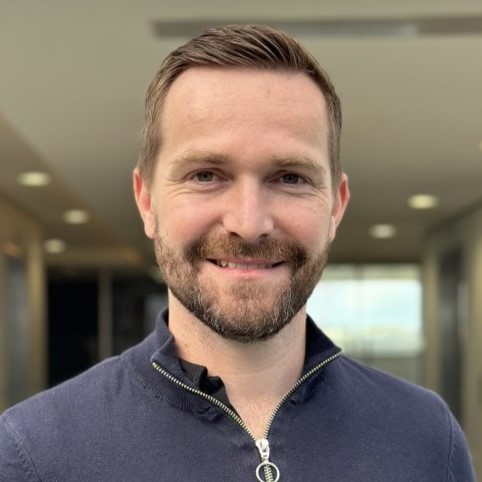 Daniel Aggio, PhD, Vitaccess, London, United Kingdom
Daniel Aggio, PhD, Vitaccess, London, United Kingdom
 Sam Llewellyn, MPH, Vitaccess, London, United Kingdom
Sam Llewellyn, MPH, Vitaccess, London, United Kingdom
 Ana Maria Rodriguez-Leboeuf, PhD MSc PT, IQVIA, Madrid, Spain
Ana Maria Rodriguez-Leboeuf, PhD MSc PT, IQVIA, Madrid, Spain
 Donna Rowen, PhD, University of Sheffield, Sheffield, United Kingdom
Donna Rowen, PhD, University of Sheffield, Sheffield, United Kingdom
Workshop 9: Using Qualitative Research (QALR) to Generate Patient Experience Data (PED) to Inform Decision Making: Methodological Practices and Exploration of the Application of Artificial Intelligence (AI)
Workshop level: Advanced
Workshop Goals:
Understand how QALR can be used to generate evidence to inform healthcare decision making, including considerations for the use of AI tools. Specifically:
- Gaining an understanding of the fundamentals of QALR, types of questions that have been answered through QALR, recommended scientifically robust QALR practices, and methodological considerations and limitations;
- Critically evaluate, through hands-on examples using AI tools, the potential role and appropriate uses (including ethical considerations) of AI tools throughout the QALR process
- Interactive elements provided opportunities for participants to test out AI tools for various stages of QALR and to engage directly with methods and outputs of QALR that have been used for decision making.
Intended Audience
Academic researchers, clinicians, patient advocates, and outcomes researchers interested in QALR. Basic understanding of QALR would be helpful.
Presentation Format
An interactive workshop including expert presentation and small group activities. Presenters discussed the topic, reflected on learnings, and encouraged group discussion. Break-out small group activities enabled consolidation of learnings, including opportunities to try AI tools for QALR.
Overview/Outline
Workshop overview/outline: (appropriate breaks will be included)
- SCENE SETTING (~40 min)
- Welcome: Audience poll, agenda, objectives
- Fundamentals of QALR
- Best practices and considerations for QALR: Objectives, study design, methods, implementation, analysis, reporting; patient engagement
- Reflections from past experiences around practical considerations and efficiencies
- SECTION I (~50 min)
- Use of QALR to generate evidence for healthcare decision making
- Presenters provided traditional and novel examples where QALR has been leveraged for decision making
- Interactive Activity: Critical evaluation of examples for methodological and operational considerations, discuss feedback
- SECTION II (~75 min)
- Considerations for AI in the context of QALR
- Fundamentals of AI in QALR
- Potential uses of AI throughout the QALR process
- Balancing human interpretation with computer-assistance
- Communicating the use of AI in QALR
- Interactive Activities:
- Being interviewed by AI
- Human vs. AI-assisted qualitative coding comparison
- Considerations for AI in the context of QALR
- WRAP UP (~15 minutes)
- Review learnings
- Guide to additional resources (hand-out)
- Evaluation
- Closing remarks
Learning Objectives
Workshop participants reflected on the fundamentals of good research practices for qualitative research (QALR), including:
- Methodological and efficiency considerations when designing and implementing QALR studies for generating Patient Experience Data (PED) fit-for-purpose to support scientific decision making; recognizing the types of research questions that have been answered through QALR in this context.
- Workshop participants also critically examined where artificial intelligence (AI) can be leveraged as a methodological tool throughout the qualitative research process such as:
- Potential applications of AI to support QALR; including an opportunity to try out AI tools for QALR;
- Ethical implications around use of AI in QALR to support scientific decision making.
- Key methodological considerations in using AI for QALR
Organizers:
 Sally Mannix, Evinova, Gaithersburg, Maryland, United States
Sally Mannix, Evinova, Gaithersburg, Maryland, United States
 Trena Paulus, PhD, East Tennessee State University, Johnson City, Tennessee, United States
Trena Paulus, PhD, East Tennessee State University, Johnson City, Tennessee, United States
 Asha Hareendran, PhD, University of Bedfordshire, Luton, United Kingdom
Asha Hareendran, PhD, University of Bedfordshire, Luton, United Kingdom
Contributor:
- Christina Silver, PhD MSc BA (hons), University of Surrey, Surrey, United Kingdom
Workshop 11: Assessment Of Treatment Response Through the Use of Personalized Endpoints in Drug Development: Goal Attainment Scaling and Beyond - Advanced Course
Workshop level: Advanced
Workshop Goals:
Personalized clinical outcome assessments, particularly Goal Attainment Scaling (GAS), are increasingly used in clinical research settings. In accordance with increased efforts for patient-centric research, GAS assesses meaningful change by incorporating patient (and caregiver) preferences and is especially valuable for assessing treatment response in conditions with heterogeneous symptoms and impacts. In their draft guidance published in 2023, the FDA underlined its strengths (i.e. highly responsive, inherently clinically meaningful, non-arbitrary, and patient-centric), but also pointed to the need to standardize the goal-setting process. In this workshop we aimed to address this need and introduce different methods to standardize GAS implementation. Our objective was to give researchers an understanding of the value of the evidence generated by this personalized endpoint and illustrate best practices for different use cases. Our overarching goal was to encourage and facilitate the use of this inherently patient-centered approach for various evidence generation needs, from Phase 1 to reimbursement studies and other research settings in clinical practice and academic environments.
Intended Audience
Are you currently planning to incorporate personalized endpoints into your research project? Are you looking for a responsive outcome assessment to successfully assess treatment response? Are you interested in Goal Attainment Scaling but unsure how it could be interpreted? Are you confused about the validity and reliability of personalized endpoints? Are you interested in exploring clinical meaningfulness at the patient level and learning more about your treatment/intervention? Are you interested in what matters most to patients/caregivers and how that relates to other standardized outcome assessments?
Presentation Format
45% lecture; 40% interactive activities; 15% admin (intro, breaks, conclusion)
Overview/Outline
- A review of different approaches to GAS implementation (goal inventory development, pre-trial and in-trial training of GAS raters, patient training, advanced goal setting, and scoring).
- An evaluation of different GAS techniques (e.g., development of goal inventories through social listening, the use of AI to enhance clinician training, and psychometric adequacy of the goal scales).
- GAS implementation plans for various use cases and the value of evidence generated by each approach (This includes a step-by-step, hands-on exercise where attendees develop GAS implementation plans and assess the value of the evidence generated by their approach).
Learning Objectives
- To introduce different approaches to GAS implementation (development of goal inventories, pre-trial and in-trial training of GAS raters, patient training, touch on advanced goal setting and scoring with examples using published frameworks).
- To introduce different GAS techniques (e.g. development of goal inventories through social listening, the use of AI to enhance clinician training and psychometric adequacy of the goal scales).
- To introduce GAS implementation plans for various use cases and the value of evidence generated by each approach (This included a step-by-step hands-on exercise where attendees develop GAS implementation plans and assess the value of the evidence generated by their approach).
Organizers:
 Gunes Sevinc, PhD MSc BSc, Ardea Outcomes, Halifax, Nova Scotia, Canada
Gunes Sevinc, PhD MSc BSc, Ardea Outcomes, Halifax, Nova Scotia, Canada
 Chere Chapman, MBA MHSc, Ardea Outcomes, Halifax, Nova Scotia, Canada
Chere Chapman, MBA MHSc, Ardea Outcomes, Halifax, Nova Scotia, Canada
 Ana Maria Rodriguez-Leboeuf, PhD MSc PT, McGill University, Montreal, Quebec, Canada
Ana Maria Rodriguez-Leboeuf, PhD MSc PT, McGill University, Montreal, Quebec, Canada
 Kellee Howard, MSc, IQVIA, Halifax, Nova Scotia, Canada
Kellee Howard, MSc, IQVIA, Halifax, Nova Scotia, Canada
Oral Sessions
Individual abstracts, peer-reviewed and selected for oral presentation. Traditionally oral sessions are composed of 5 peer-reviewed abstracts clustered around one common theme. Peer reviewed abstracts and full author listing will be noted in the Abstract Supplement when available.
In-person Poster Sessions
Poster sessions feature peer-reviewed abstracts in thematic groupings. Peer reviewed abstracts and full author listing will be noted in the Abstract Supplement when available.
Virtual Poster Hall
Virtual posters are available on-demand to both in-person and virtual attendees. Peer reviewed abstracts and full author listing will be noted in the Abstract Supplement when available.
Event Descriptions
Tricks of the Trade
Organized by the New Investigator SIG
Speakers
Lene Kongsgaard Nielsen, MD PhD, Angela Stover, PhD, and Calvin Ho, PhD
Building your career: Expert tips from experienced ISOQOL members
This engaging session was designed specifically for new investigators exploring diverse career paths in quality of life research. This session featured experts who shared valuable insights, practical tips, and strategies to help you navigate your career journey effectively. Whether you’re considering academia, industry, or clinical practice, the experts provided tips and tricks on making informed decisions and maximizing your professional growth.
Reception for COA developers hosted by Mapi Research Trust*
Come meet with us to discuss the challenges and solutions related to strategic and operational management of PROMs and other COAs, as well as the keys to increase the visibility of your COAs and improve the COA user experience (and satisfaction!) – all to ensure the increased use of COAs worldwide.
*This was an Ancillary Event hosted by Mapi Research Trust and was not an ISOQOL event.
Clarivate Meeting Room*
Meet the Clarivate COA team!
*This was an Ancillary Event hosted by Clarivate and was not an ISOQOL event.
Our 2025 Sponsors
GOLD SPONSORS
SILVER SPONSORS
BRONZE SPONSORS
SUPPORTERS
EXHIBITORS
Special thanks to our past sponsors.
Interested in being a sponsor? Learn more here.

The International Society for Quality of Life Research (ISOQOL) is a global community of researchers, clinicians, health care professionals, industry professionals, consultants, and patient research partners advancing health related quality of life research (HRQL).
Together, we are creating a future in which patient perspective is integral to health research, care and policy.

